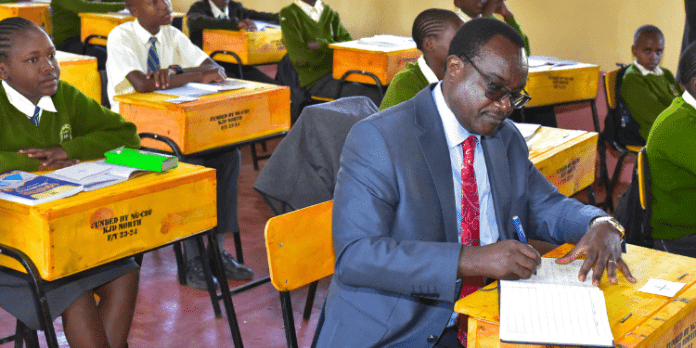The Ministry of Education has announced that the results of the Kenya Junior School Education Assessment (KJSEA) will be released by December 11.
Speaking to journalists on Monday, Basic Education Principal Secretary (PS) Prof Julius Bitok said placement of the learners to senior schools will begin one week after the release of the results. Bitok added that the 1.1 million learners are expected to report to their respective institutions by January 12, 2026.
“Our plan is that we release the results and do placements within one week. We expect the learners to get their letters before Christmas and report on January 12, 2026,” Bitok said.
“We are putting systems and measures and everything required for smooth transition of the 1.1 million learners who sat for KJSEA. We have issued the guidelines from the beginning to the end. From where I sit, we have no confusion,” he added.
Bitok also outlined the structure of senior school under CBC, noting that schools had been organised into four clusters and that learners will pursue one of three pathways: STEM (Science, Technology, Engineering and Mathematics), Social Sciences, or Arts and Sports.
The inaugural Kenya Junior School Education Assessment (KJSEA) national examinations kicked off on Monday, October 27, 2025 and ended on November 3, 2025.
Learners sitting the exams will be looking to move to senior school in January 2026 as the first class under the Curriculum Based Education to make the transition.
Education Ministry scraps secondary schools categorisation, announces Sh53,000 fees
However, unlike the previous 8-4-4 system in which students were awarded certificates after completing their Kenya Certificate of Primary Education (KCPE) exams, Grade 9 students will not be awarded certificates for their KJSEA exams.
According to Education Cabinet Secretary Julius Ogamba, the students will be given result slips which will show the grades they scored in their respective subjects.
“The new system represents a fundamental shift from the old Kenyan certificate of primary education model, emphasizing skills, creativity, and continuous learning rather than one-off-high stakes testing,” said CS Ogamba.
“KJSEA exams are not about ranking or elimination; they are about understanding what a learner can do with the knowledge they have acquired. It values skills, innovation, and real-world problem-solving.”
The subjects that will be assessed under the KJSEA include Mathematics, English, Kiswahili, Integrated Science, Social Studies, Religious Education, Agriculture, Pre-Technical Studies, Creative Arts, and Physical Education.









